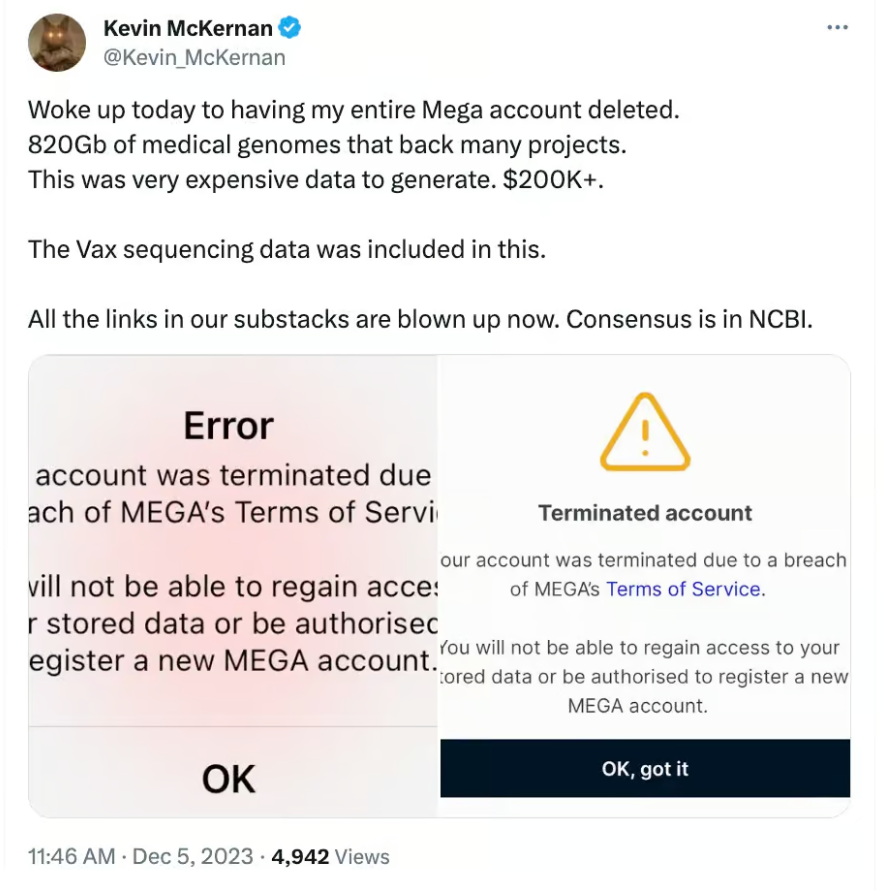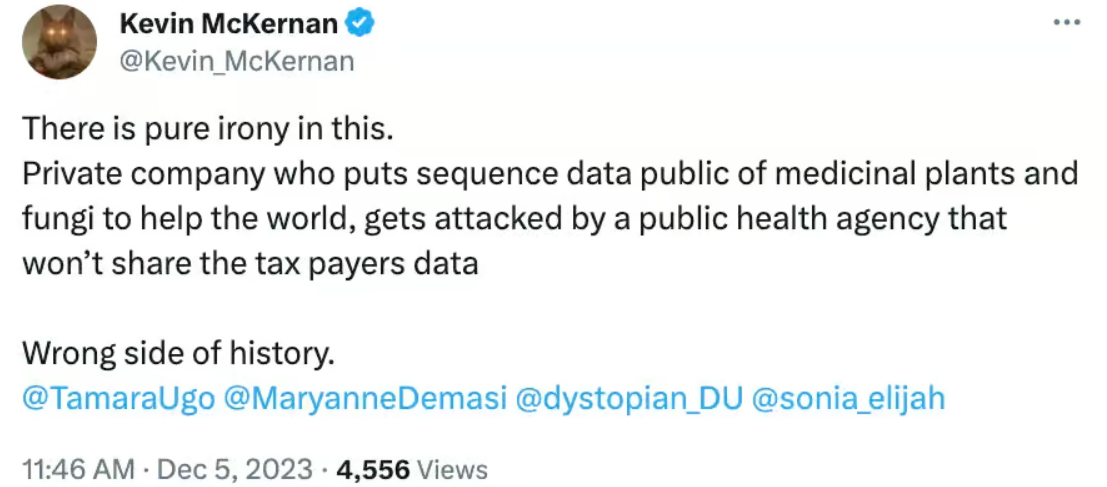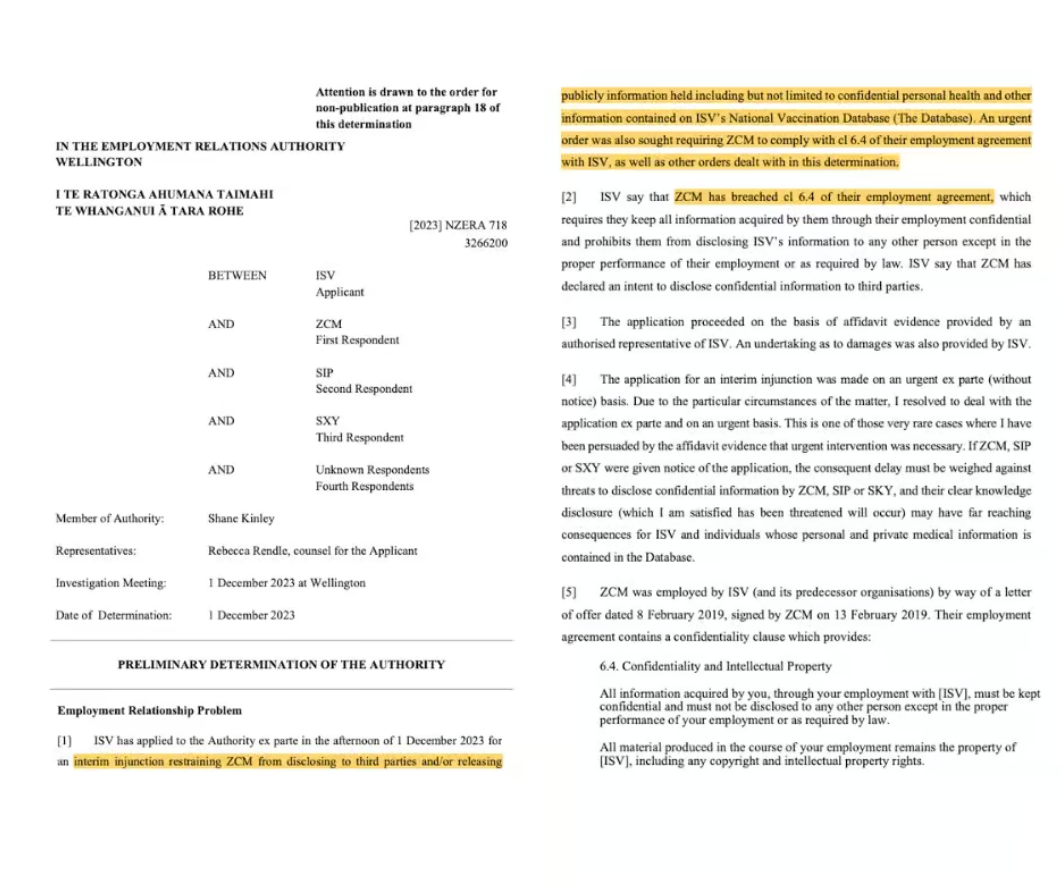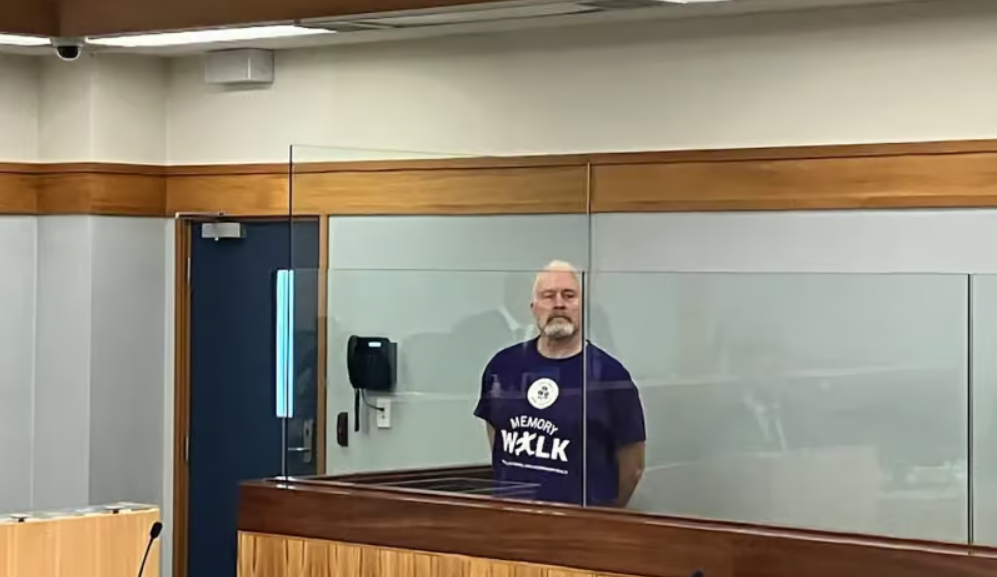Table of Contents
Rebekah Barnett
Rebekah Barnett reports from Western Australia. She is a volunteer interviewer for Jab Injuries Australia and holds a BA in Communications from the University of Western Australia. Find her work on her Substack page, Dystopian Down Under.
US-based genomics scientist Kevin McKernan says he has lost an estimated US $200,000 worth of research data after his account on file-hosting service MEGA was deleted overnight.
It appears that McKernan’s account was deleted by MEGA in response to an urgent injunction granted to New Zealand’s (NZ) Ministry of Health (MOH) to prevent the sharing of anonymised data leaked by whistleblower Barry Young.
Young, a 56-year-old database administrator and former employee of the MOH, leaked data from a ‘pay per dose’ Covid vaccine database to NZ journalist Liz Gunn and US tech millionaire and Substacker Steve Kirsch.
Both Gunn and Kirsch claimed that the data showed conclusive proof that the Covid vaccines are killing people at high rates. Kirsch publicly uploaded the data on Friday 1 December, the same day the injunction was granted to the MOH.
McKernan had ‘mirrored’ Kirsch’s data upload on his MEGA account to make it easier for people to download and analyse […]
Having heard that an injunction had been granted to the MOH to prevent further distribution of the NZ data, McKernan says that he texted Kirsch to get clarity on Sunday 3 December, but did not hear back.
In a thread posted to X on Monday 4 December Boston time* (where McKernan is based), McKernan says he woke up to find that his entire MEGA account, including medical genome sequencing and vaccine sequencing data, with an estimated value of US$200,000, had been suddenly deleted. McKernan is one of the leading scientists involved in researching DNA contamination in the mRNA Covid vaccines.

“There is pure irony in this. Private company who puts sequence data public of medicinal plants and fungi to help the world, gets attacked by a public health agency that won’t share the tax payers data… Wrong side of history,” wrote McKernan, who heads up medical cannabis company Medicinal Genomics.

McKernan also warned that some of the deleted files were related to criminal court proceedings. “We are assessing the damages … this should get very interesting,” he wrote.
On 2 December, Kirsch reported that the site where he was hosting the NZ whisteblower data, Wasabi, had turned off his account without notice, speculating that “maybe it was because the New Zealand Ministry told them to take down my site as noted in this article.”

Concerned parties report that despite requesting to see the wording of the injunction since it was granted late last week, their requests were refused. The injunction was only made publicly available at 6pm on Tuesday 5 December, NZ time.

The injunction was awarded by the Employment Relations Authority, which Voices For Freedom NZ Head of Legal, Katie Ashby-Koppens, suggests has “acted outside its remit” and therefore does not have the power to make such orders against third parties or in other jurisdictions.
“There are grounds for challenging this injunction,” says Ashby-Koppens, noting Kirsch’s public assurances that the released data has been anonymised, and so poses no threat of breach of privacy.
Conspicuously, in the flurry of New Zealand media articles reporting on the data leak and the injunction, no Ministry of Health representative has suggested that the data leaked by Young is fabricated or in any way false.
Young has reportedly been charged with “accessing a computer system for dishonest purposes” and was scheduled to be released on bail at 1pm today.
MEGA has been contacted for comment.

*McKernan’s post was created on Monday 4 December Boston time, but at Tues 5 December Perth time, where the screenshots were taken. Hence the apparent discrepancy in dates. The date of McKernan’s communication with Steve Kirsch has been updated to reflect Boston time.
Republished from the author’s Substack.









